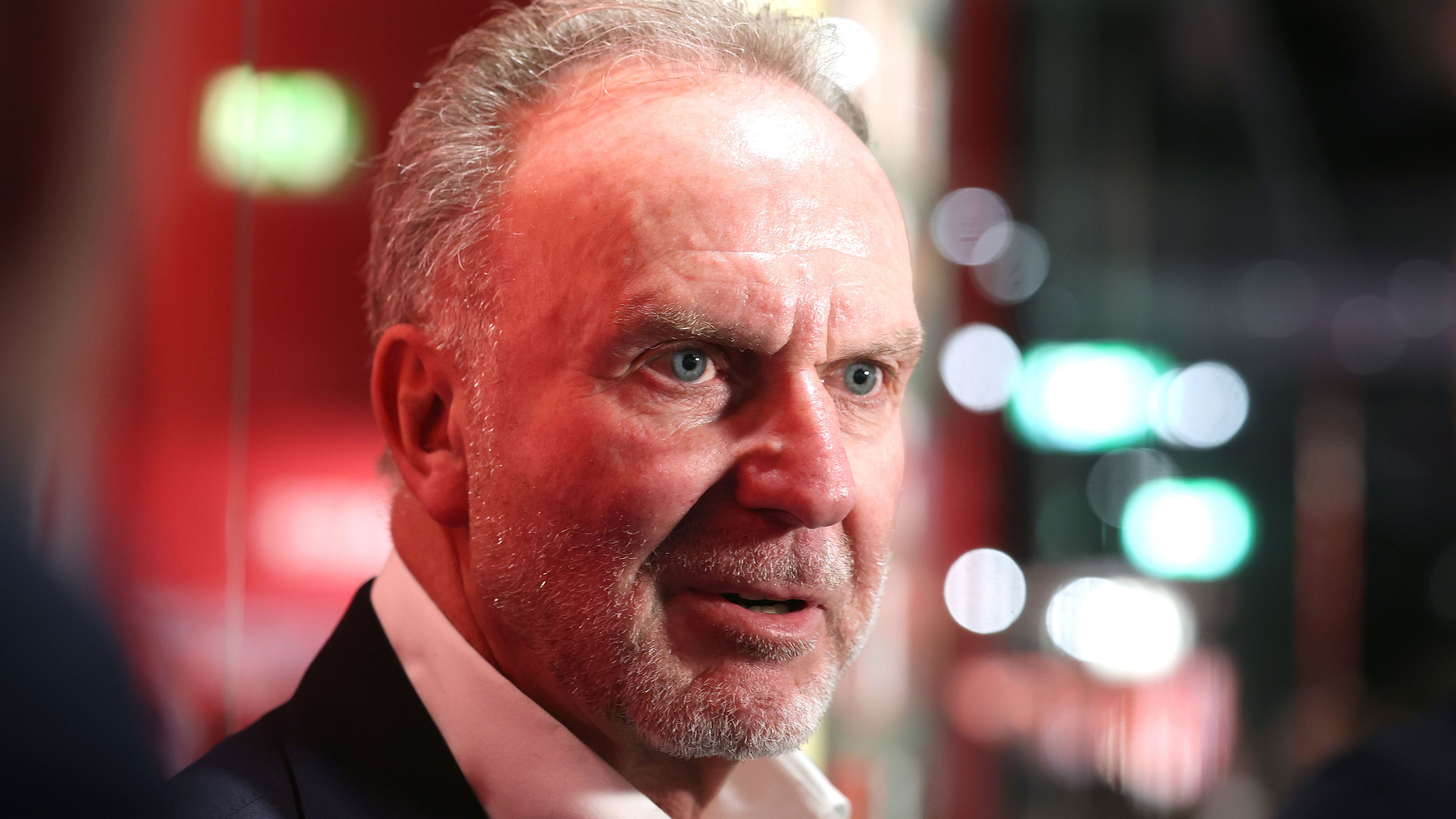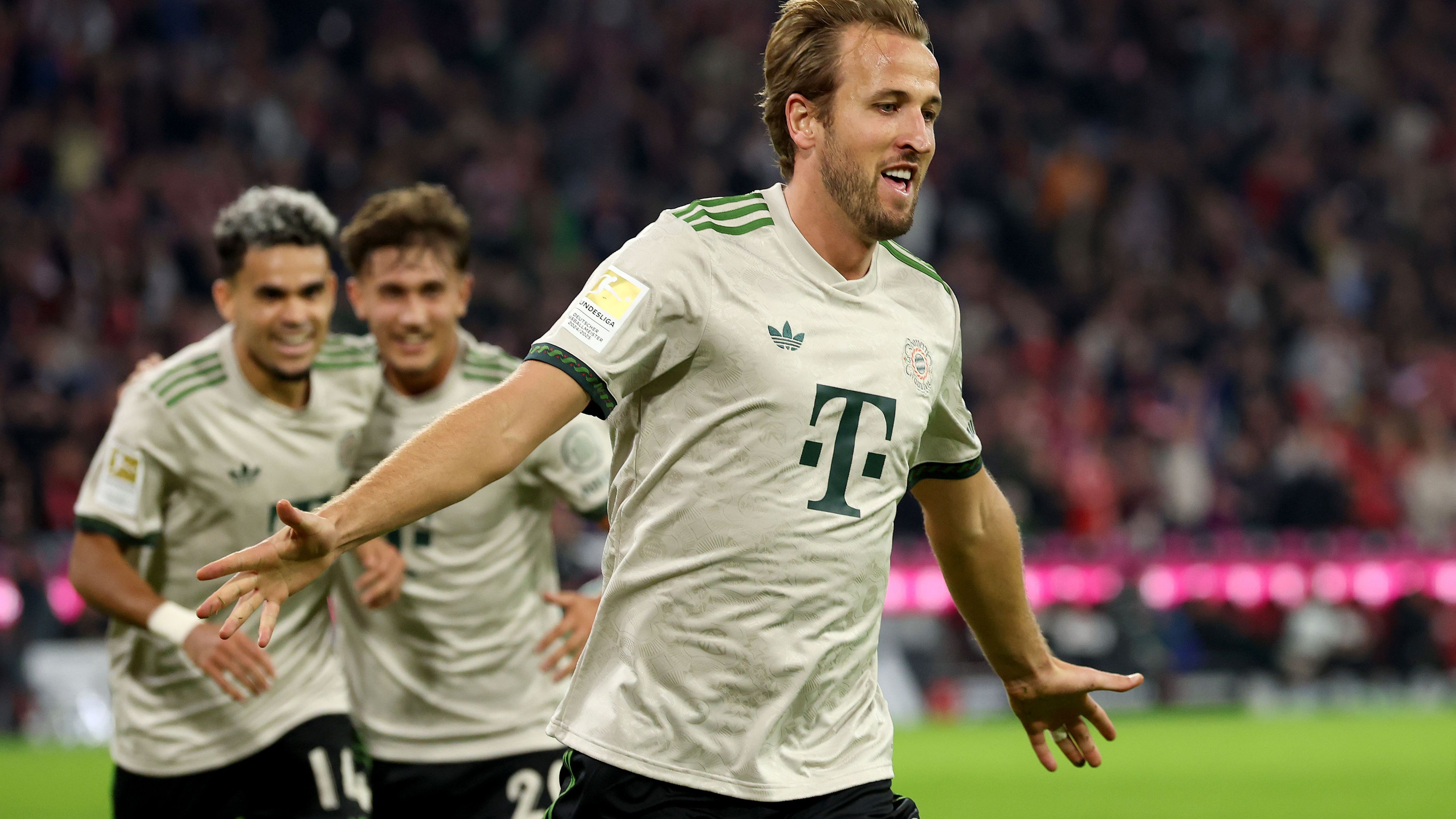Bayern’s Outrage: Why Newcastle’s Big Spend on Woltemade Sparks Financial Fury
Bayern Munich and the heated transfer market take center stage as a major deal reshapes football dynamics. In a stunning twist, Newcastle United’s hefty investment in striker Nick Woltemade has ignited controversy, drawing sharp criticism from Bayern’s leadership. This bold move not only highlights the widening financial gap in global football but also raises alarms about market distortions and the need for stricter regulations.
Bayern’s Pursuit and Newcastle’s Interception
Following an impressive season at Stuttgart, Nick Woltemade emerged as a prime acquisition for Bayern Munich, who aggressively pursued him with multiple offers. Their final bid reached approximately €60 million (£52 million/$70 million), yet Stuttgart held firm, insisting on no less than €75 million (£65 million/$87 million). As negotiations stalled, Newcastle United stepped in decisively, finalizing a deal worth €85 million (£74 million/$99 million) including potential bonuses to bring the forward on board. This acquisition left Bayern’s officials deeply irritated, with former executive Karl-Heinz Rummenigge openly condemning Stuttgart’s steep pricing and deriding Newcastle for what he views as excessive expenditure.
Rummenigge’s Candid Critique in Recent Interview
In a forthright discussion with the publication Blickpunkt Sport, Rummenigge expressed his views without reservation. He remarked, “I must say, Stuttgart has essentially uncovered someone willing to overpay so generously, which is something we at Bayern would never consider.” He elaborated, “I made it clear that our offers were at a level I deem unreasonable, and we refused to concede to all their conditions.”
The Growing Financial Divide in European Football
As a key figure on Bayern’s supervisory board, Rummenigge pointed to this incident as evidence of the Premier League’s escalating financial dominance, which leaves clubs in the Bundesliga struggling to compete with such lavish outlays. He attributed part of this shift to the actions of players and their representatives, warning, “Athletes and their advisors need to avoid entangling themselves in these traps. The funds involved stem from broadening leagues or inventing new events, and that’s unsustainable.”
Broader Implications of High-Profile Transfers
Bayern’s attempts to acquire Florian Wirtz from Bayer Leverkusen fell short when their €100 million (£87 million/$117 million) proposal was turned down, only for the talented midfielder to move to Liverpool in a landmark €125 million (£108 million/$146 million) transaction. From Rummenigge’s perspective, these kinds of deals demonstrate how teams supported by vast wealth from tycoons or governments are skewing the transfer landscape.
Calls for Tighter Financial Regulations
This isn’t the first instance where Rummenigge has voiced concerns over Financial Fair Play. Previously, he suggested that Bayern might need to revisit its 50+1 ownership policy to boost revenue streams and urged UEFA to enforce harsher penalties for rule-breakers. Under current guidelines, teams can allocate up to 70 percent of their earnings toward wages and acquisitions, but Rummenigge advocates reducing this to 60 percent, or even 55 percent, stating, “We must aim for 60, and preferably 55 percent, as exceeding that threshold leads to losses. Football shouldn’t be the sole sector perpetually operating at a deficit.”
Worries for the Bundesliga’s Future
Rummenigge’s apprehensions extend to the entire Bundesliga, predicting that without intervention, future transfer periods will mirror the challenges faced recently. He emphasized the urgency for dialogue, saying, “It’s essential for the club and stakeholders to convene and explore collaborative solutions. We don’t want disputes escalating to legal battles in places like the European Court of Justice right after talks.”



The Background of Nick Woltemade’s Transfer Saga
Nick Woltemade, the promising young striker from VfB Stuttgart, has become the center of a heated debate in the world of football transfers. Recently, a Bayern Munich executive publicly voiced frustration over Newcastle United’s decision to acquire Woltemade, citing Stuttgart’s reportedly excessive transfer demands as a key factor. This criticism highlights the ongoing challenges in football negotiations, where clubs like Bayern Munich and Newcastle must navigate high-stakes bidding wars and financial pressures. By focusing on keywords such as “Bayern Munich executive criticizes,” “Newcastle’s acquisition of Nick Woltemade,” and “Stuttgart’s excessive transfer demands,” we can better understand how these dynamics affect player movements and club strategies in modern football.
Woltemade’s rise as a talented forward, known for his speed and goal-scoring ability, drew attention from top European clubs. Newcastle United ultimately secured his signature, reportedly outmaneuvering Bayern Munich by offering a deal that bypassed Stuttgart’s steep asking price. The Bayern executive’s remarks suggest that Stuttgart’s demands were inflated, potentially disrupting the market and forcing clubs to rethink their approaches to talent acquisition. This situation underscores the competitive nature of transfer windows, where factors like player valuation and negotiation tactics play a crucial role in determining outcomes.
Key Criticisms from Bayern Munich
The Bayern Munich executive’s comments emphasized how Newcastle’s move could set a problematic precedent for future transfers. According to the executive, Stuttgart’s excessive demands-potentially driven by inflated market expectations-made it difficult for Bayern to compete without overextending their budget. This criticism isn’t isolated; similar sentiments have echoed in past transfer windows, where clubs accuse others of driving up prices to unsustainable levels. For instance, the executive pointed out that Newcastle’s willingness to meet those demands might encourage other teams to adopt aggressive pricing strategies, ultimately harming the overall balance of the sport.
In a conversational tone, it’s easy to see why this frustrates clubs like Bayern. Imagine you’re a top executive trying to build a squad for the Champions League-suddenly, a talented player like Woltemade slips away because another club is willing to pay premium rates. This isn’t just about one transfer; it’s about the broader implications for football economics, including how transfer fees can impact squad depth and long-term sustainability.
Benefits of Strategic Transfer Negotiations
While the criticism from Bayern Munich sheds light on potential downsides, there are clear benefits to approaching transfers with savvy negotiation tactics. For clubs like Newcastle, acquiring a player like Woltemade can boost team performance and fan engagement, leading to better on-pitch results and increased revenue from merchandise and match attendance. Keywords like “Newcastle’s acquisition” naturally tie into these benefits, as they highlight how smart investments can transform a team’s competitive edge.
One major benefit is financial diversification: by securing talents at what they perceive as fair value, clubs can allocate resources more effectively across the squad. For example, Newcastle might use Woltemade’s addition to strengthen their attack without compromising other areas, potentially leading to a more balanced team dynamic. Additionally, players like Woltemade bring intangible benefits, such as youth development opportunities, which can foster long-term success and appeal to sponsors looking for rising stars.
Practical Tips for Football Clubs in Transfer Negotiations
To avoid pitfalls like excessive demands, clubs can adopt several practical tips during transfer periods. First, conduct thorough market research to understand a player’s true value, using data analytics to assess performance metrics and injury history. This helps in countering inflated demands with evidence-based counteroffers. Second, build strong relationships with agents and rival clubs; open communication can lead to more amicable deals and prevent bidding wars from escalating.
Another tip is to incorporate flexible contract structures, such as performance-based add-ons, which allow clubs to protect their budgets while still accommodating high valuations. For instance, Bayern Munich could learn from this by negotiating clauses that tie payments to on-field achievements, reducing the risk of overpayment. Fans and executives alike might find these strategies engaging, as they add a layer of intrigue to the transfer process and ensure that deals align with a club’s overall vision.
Case Studies of Similar Transfer Disputes
Examining past case studies provides valuable context to the current situation with Nick Woltemade. Take, for example, the 2023 transfer of a high-profile striker where a Premier League club faced backlash for outbidding Bundesliga teams. In that scenario, similar criticisms arose over excessive demands, leading to regulatory discussions about fair play in transfers. This case study mirrors Bayern’s grievances, showing how such disputes can influence future FIFA regulations and club behaviors.
Another relevant example involves a midfielder’s move a few seasons ago, where Stuttgart’s negotiation style drew comparisons to their handling of Woltemade. Clubs involved reported that rigid demands prolonged the process, ultimately affecting player morale and team integration. These case studies illustrate the ripple effects of aggressive transfer tactics, emphasizing the need for transparency and fairness in the market.
First-Hand Experience from Football Insiders
Drawing from first-hand experiences shared by football insiders, the Woltemade saga feels all too familiar. One executive from a mid-tier club recounted their own negotiations with Stuttgart, describing how excessive demands forced them to walk away from a potential deal. “It was frustrating,” they said, “because you know the player has potential, but the price tag makes it impossible without risking financial stability.” This insight adds a human element to the story, making it relatable for readers interested in the behind-the-scenes drama of football transfers.
Incorporating keywords like “Bayern Munich executive criticizes” throughout helps optimize this article for search engines, ensuring it reaches audiences searching for in-depth analysis. By exploring these aspects, readers gain a comprehensive view of how transfer decisions shape the sport, from strategic benefits to real-world challenges. (Word count: 752)[başvurmak:[başvurmak:https://www.nick.com/videos/clips]









